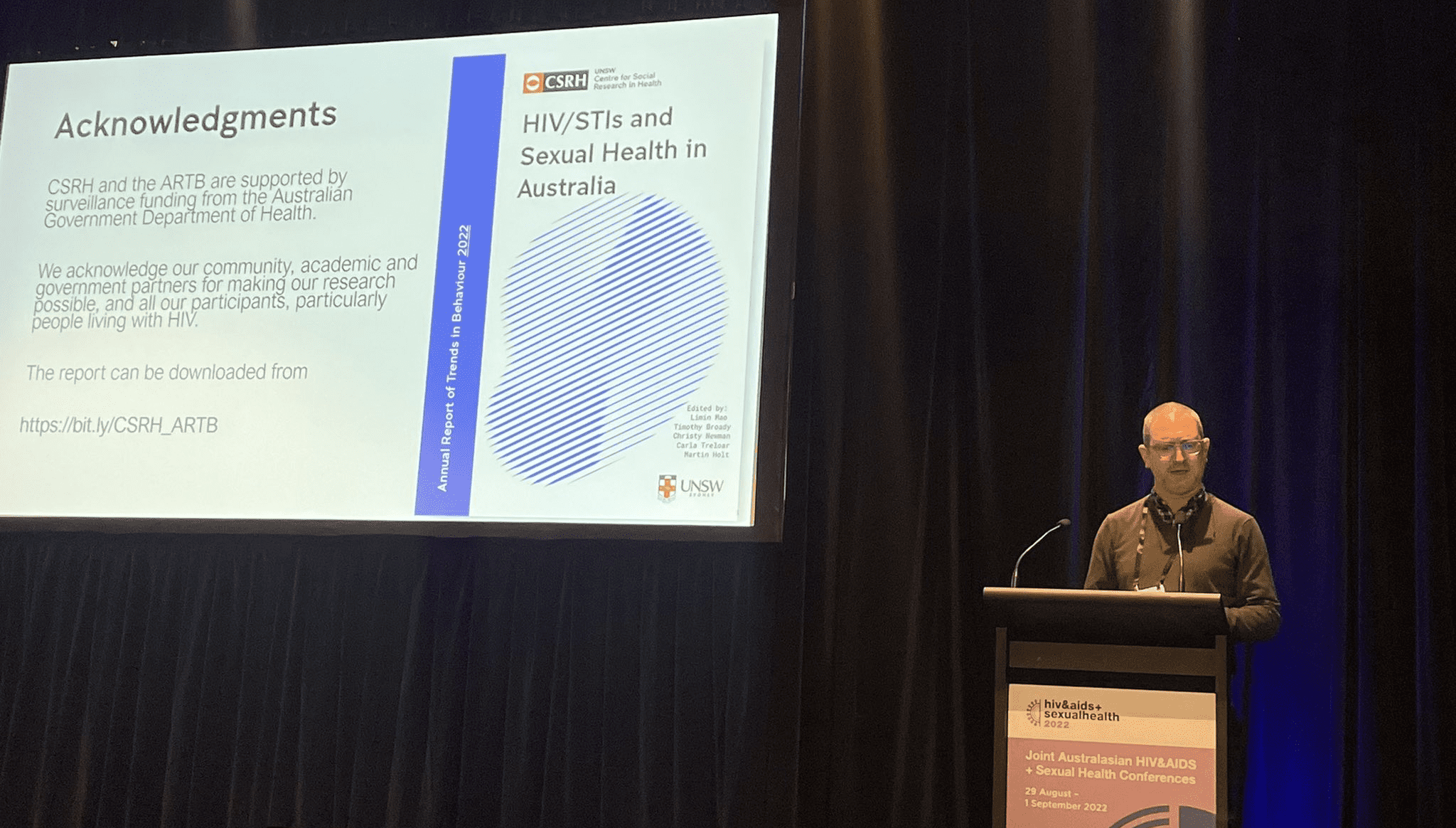
Researchers, clinicians, and community groups came together recently for ASHM’s annual Sexual Health and HIV & AIDS Conference to share knowledge, address existing gaps in the ongoing response to HIV, and advance our work toward the virtual elimination of HIV in Australia.
One topic discussed during the conference was reaching the 95-95-95 targets set forth by the Fast Track Cities Initiative, including:
- 95% of people living with HIV knowing their status
- 95% of people who know their status on antiretroviral therapy (ART)
- 95% of people on ART with suppressed viral loads
At the start of the year, Adelaide joined Melbourne and Perth as Fast Track Cities in Australia – with discussion that Sydney and Brisbane may join the initiative in the future.
Nikki Sullivan is based in Adelaide as the CONNECT Project Coordinator at SAMESH. Nikki said that while we’re supporting and empowering Australian-born people living with HIV (PLHIV) and LGBTIQ+ communities, efforts to engage with other communities need to be more targeted.
“The closer we get to reaching those targets, the more focused our attempts to reach the audience need to be. We have more work to do in engaging people who don’t identify as queer, but for numerous reasons could be at risk.”
Nikki also said that reaching culturally and linguistically diverse (CALD) and overseas-born men who have sex with men will require different approaches.
“It might take speaking in different ways, different imagery or channels, and so on. We’re talking about targeting really small numbers of people but if you don’t do that, then this small portion of people we’re not engaging could potentially grow. That work will take a lot of time, energy and thought.”
Another gap to be addressed is the contemporary understanding of what it means to be ‘undetectable’ for PLHIV.
UNSW’s PrEPARE Project found in 2021 that only 37% of HIV-negative respondents believed that HIV treatment prevents transmission or ‘Undetectable = Untransmittable’ (U=U).
Thorne Harbour Health’s Michael Whelan and Chris Williams attended the conference and reflected on the presentation’s findings.
“We felt a bit kind of smacked in the face by this research,” said Michael.
“People using PrEP were perhaps aware of U=U but weren’t willing to rely on it as a strategy. It’s a huge piece of social entanglement that we really want to understand better.”
Even with the double whammy of using both U=U and PrEP, Chris found it fascinating to unpack and ask about what’s contributing to this uncertainty from PrEP users.
“We have possibly the safest possible combination you can imagine when it comes to the lack of HIV transmission that could happen in this scenario. And yet, there was still a cultural unwillingness around this,” Chris said.
“What kind of social or cultural interventions might we put in place to change all of that? Ultimately I think that we’re looking at this research for social good. Also, PrEP users, you can be having more sex than you’re having!”
Michael agreed.
“You’re actually cutting [down] the network of people that you could be having some amazing fun sex with,” he said.
“So you’re doing yourself a disservice.”
For more from this year’s Sexual Health and HIV & AIDS Conference, check out the recent episode on Well Well Well here.






